Emails between NYPD and Clearview AI obtained by FOIL request prompt questions
Justin Hendrix, Joël Carter / Apr 6, 2021Documents related to a FOIL request that sought "emails sent to, from, or copied to NYPD employees" regarding the controversial facial recognition startup Clearview AI are now in the public domain on the nonprofit news site Muckrock.
The documents include largely mundane communications between the Department and startup, but nevertheless prompt questions about how NYPD uses Clearview's facial recognition service in accordance with its own polices on facial recognition software. Filed in January by Rachel Richards, the FOIL request sought emails including keywords such as "Clearview ", "Clearview free trial", "Clearview AI", or "Clearview licenses".
The disclosure was prompted by the recent resolution of litigation around a prior request filed in February 2020 by Jerome Greco on behalf of the Legal Aid Society; the Society's Jonathan McCoy subsequently litigated an Article 78 lawsuit in order to get the records released.
“The NYPD has purposefully kept New Yorkers in the dark on the controversial surveillance technologies that the Department deploys citywide,” said Jonathan McCoy, Staff Attorney with the Digital Forensics Unit at The Legal Aid Society. “Short of this litigation and these disclosures, the public would never know the extent to which NYPD employed Clearview - a controversial tool that other localities have banned outright. We need action from lawmakers in Albany and at City Hall to prohibit the use of facial recognition technologies outright to protect New Yorkers’ privacy and other fundamental rights.”
A Tech Policy Press review of NYPD surveillance technology capabilities and policies earlier this year hosts a recently disclosed policy statement around facial recognition from NYPD that notes "NYPD investigators receive specialized training on facial recognition technology and image comparison principles. These facial recognition investigators compare probe images obtained during investigations with a controlled and limited group of photographs already within possession of the NYPD." But the documents obtained in the FOIL request contain no reference to training on the service or on limitations for its use. Instead, officers are encouraged to do as many searches as possible. One email suggests the service is being used in a project that includes data from social media sites.
"It's fun," writes Clearview AI founder Hoan Ton-That says in one email encouraging an officer to use the service.
The documents corroborate other media reports that suggest little oversight in the use of Clearview AI software by public agencies across the country, such as a report published this morning by BuzzFeed News. "According to reporting and data reviewed by BuzzFeed News, more than 7,000 individuals from nearly 2,000 public agencies nationwide have used Clearview AI to search through millions of Americans’ faces, looking for people, including Black Lives Matter protesters, Capitol insurrectionists, petty criminals and their own friends and family members," reports BuzzFeed.
Below are a number of notable exchanges contained in the document:
- As recently as 2020, NYPD officers appear to write directly to Clearview to request access to its services. Emails encourage officers new to the service to "Search a lot. Your Clearview account has unlimited searches" during the trial period.
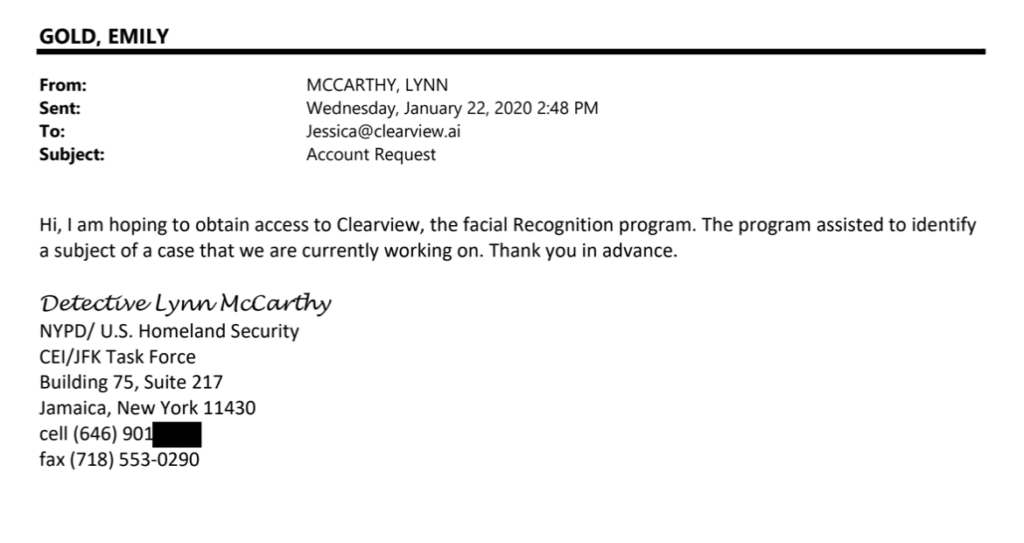
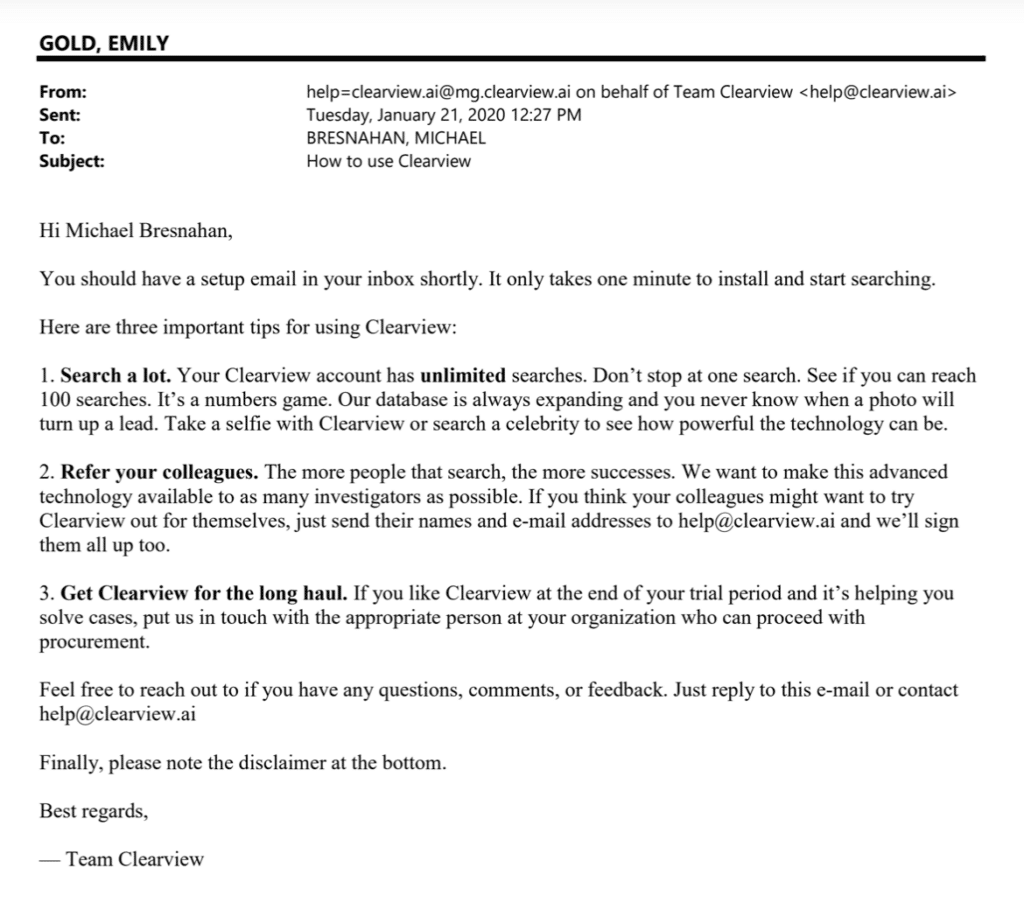
2. The emails show collaboration between NYPD and ICE employing the service. ICE agents and NYPD agents with ICE associate email accounts are referenced. Note that the NYPD facial recognition policy statement states that with regard to facial recognition, “Information is not shared in furtherance of immigration enforcement” and “Access will not be given to other agencies for purposes of furthering immigration enforcement.”


3. Some NYPD officers made inquiries related to how to comply with policy and legal constraints in the use of the service. Clearview founder Hoan Ton-That promised features could be developed to satisfy such requirements.
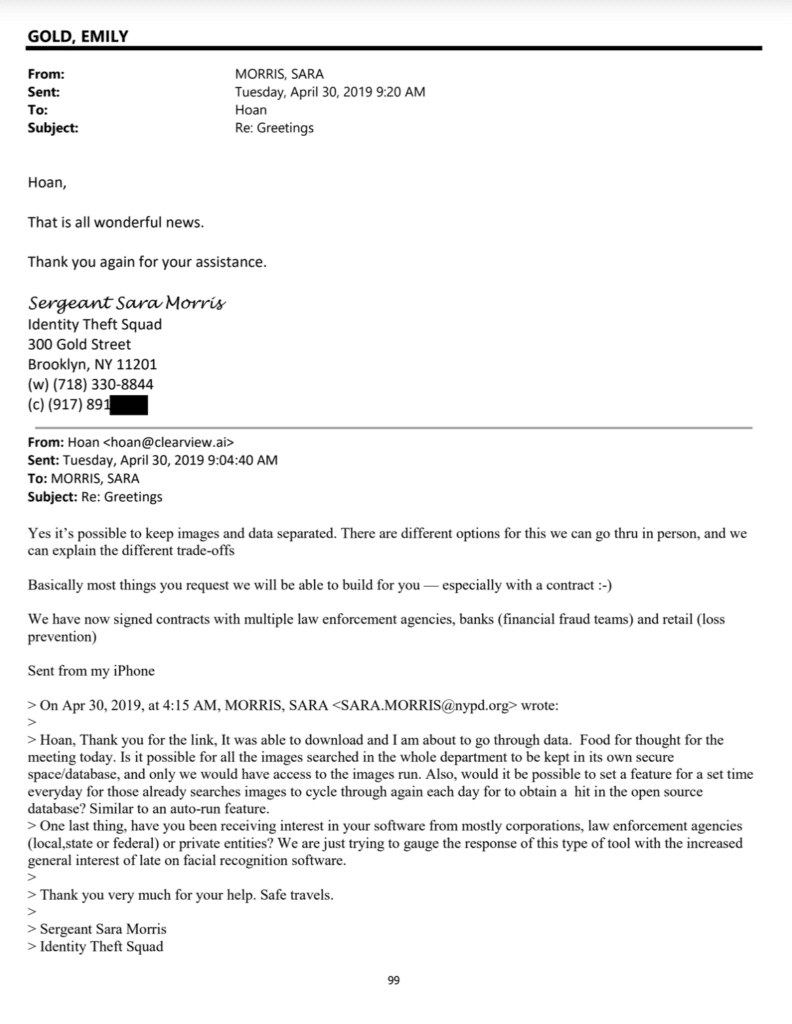
4. Clearview provided a weekly "report" on NYPD use of its services in the Spring of 2019, detailing the number of searches and the "hit rate". This is one example:
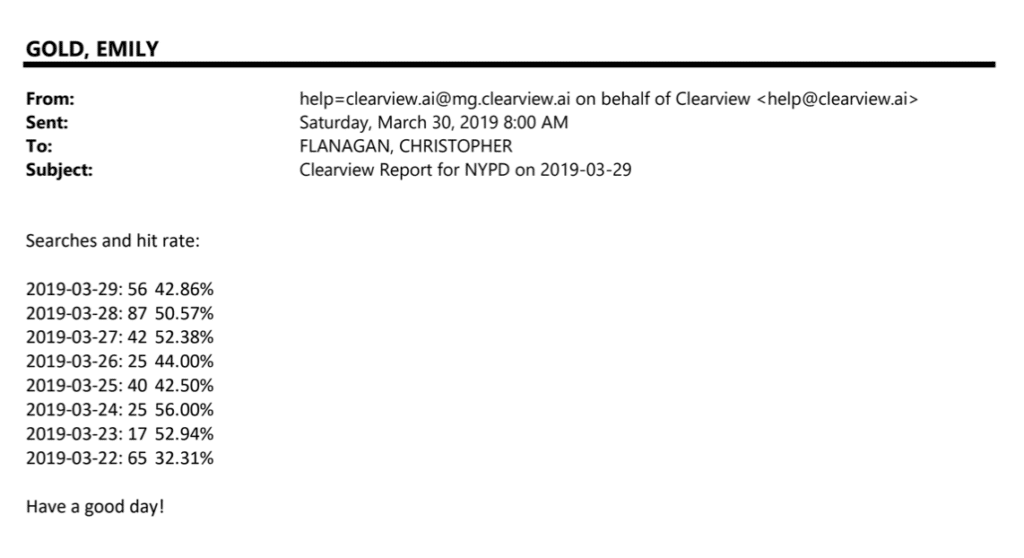
5. An NYPD facial recognition analyst was excited about the service in spring 2019 and reported he had been testing it "successfully." The analyst writes about using the service in conjunction with "projects analyzing cases that have social media subjects".
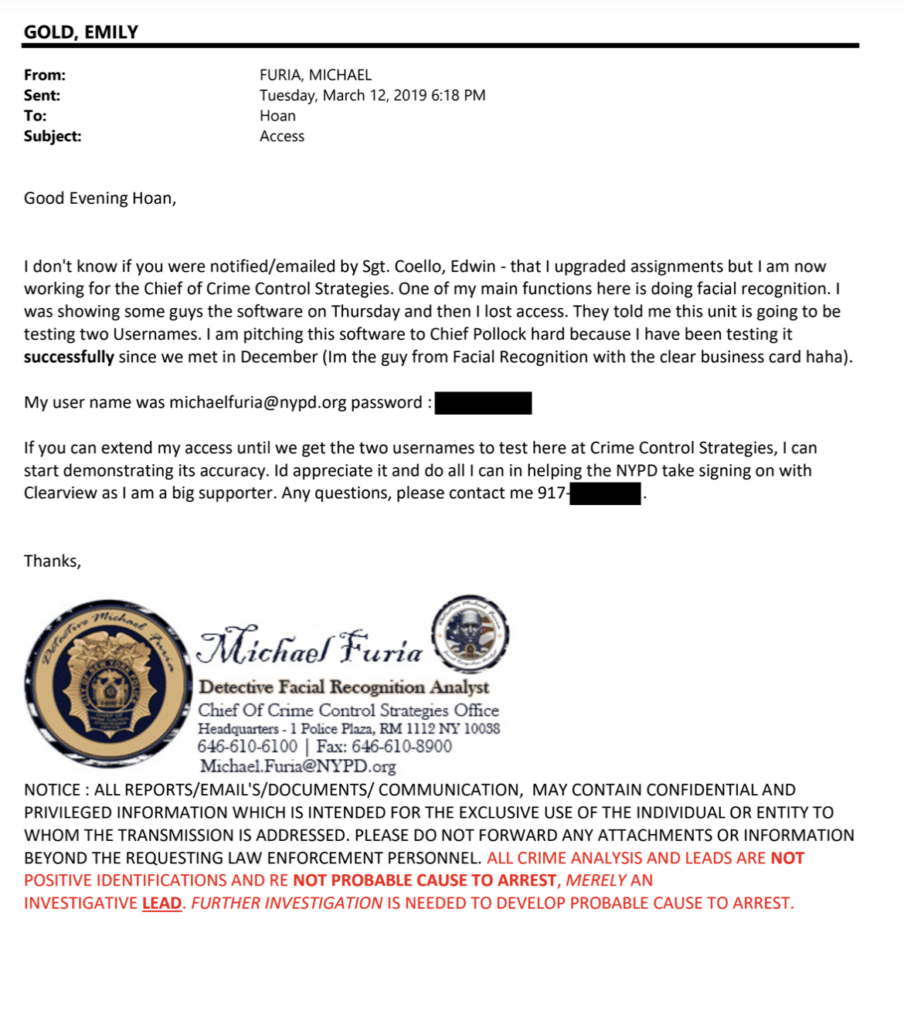
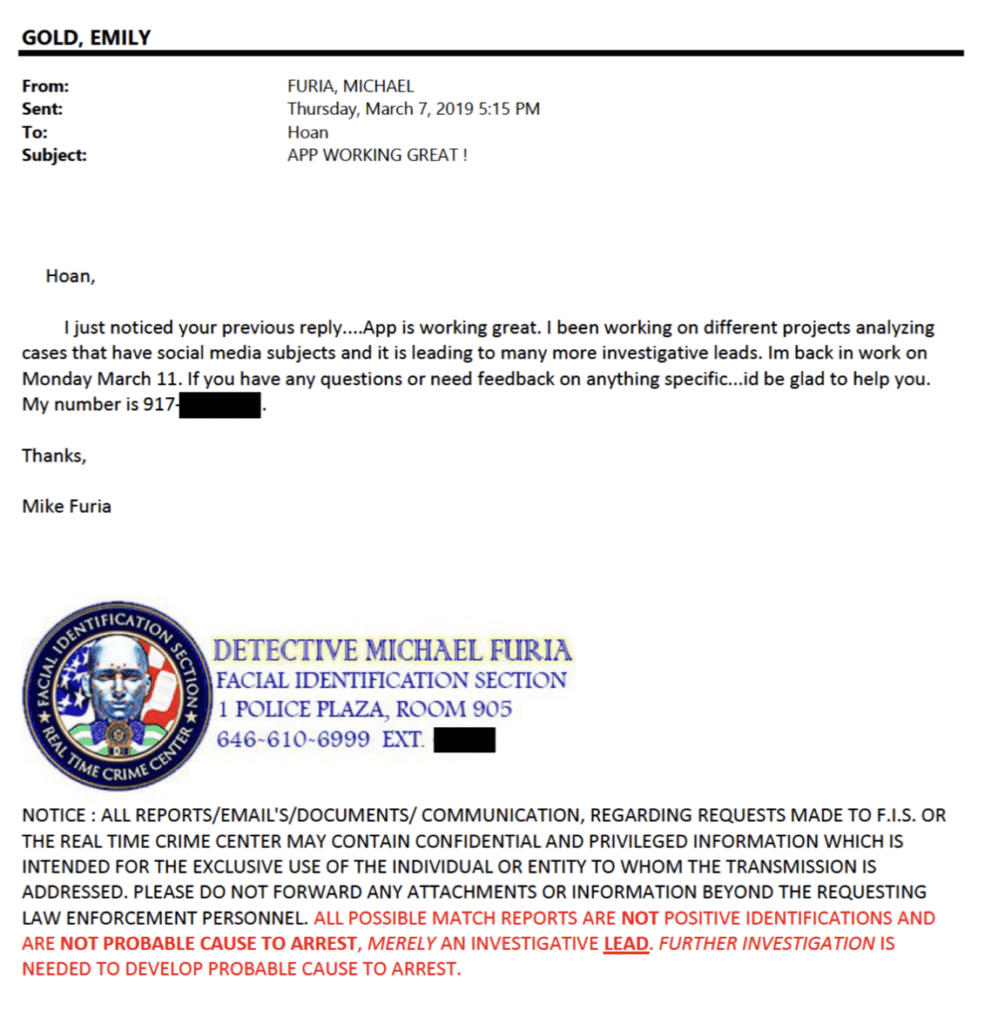
6. NYPD may have used Clearview AI to identify its own officers to satisfy a request apparently from Deputy Commissioner of Internal Affairs Joseph Reznick. NYPD's Internal Affairs Bureau investigates misconduct and corruption in the Department.
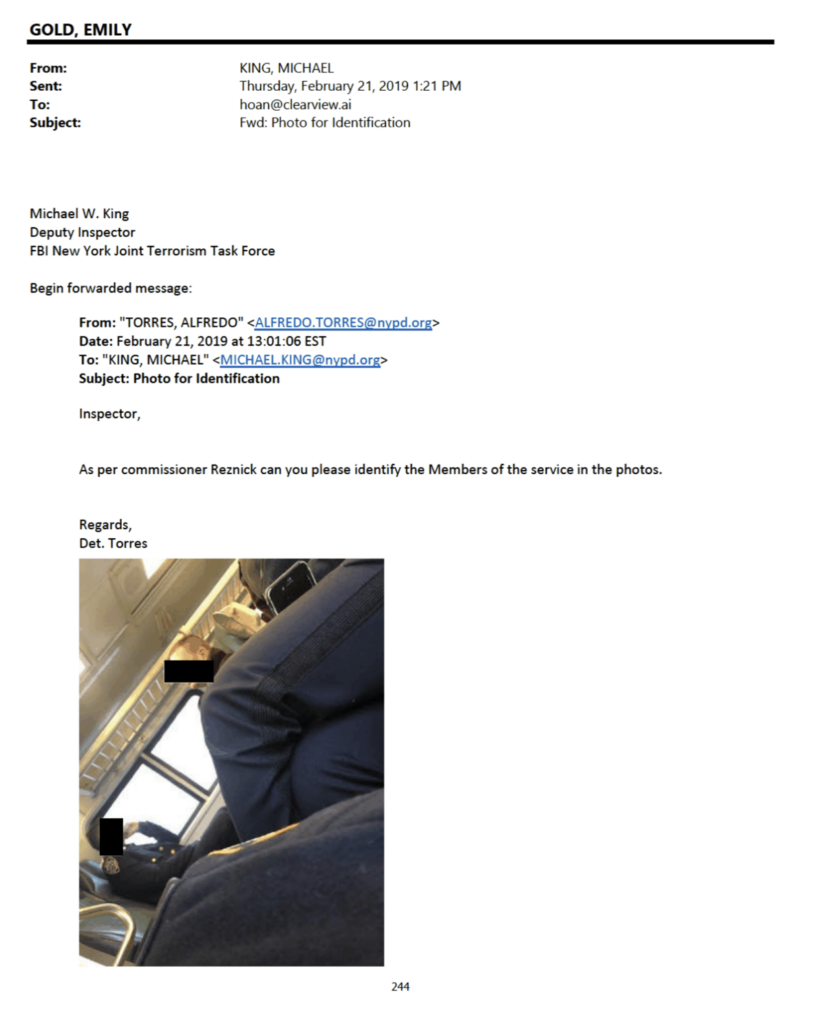
7. An NYPD official requested access to Clearview accounts from personal email addresses, and there are multiple references to use of personal mobile devices.

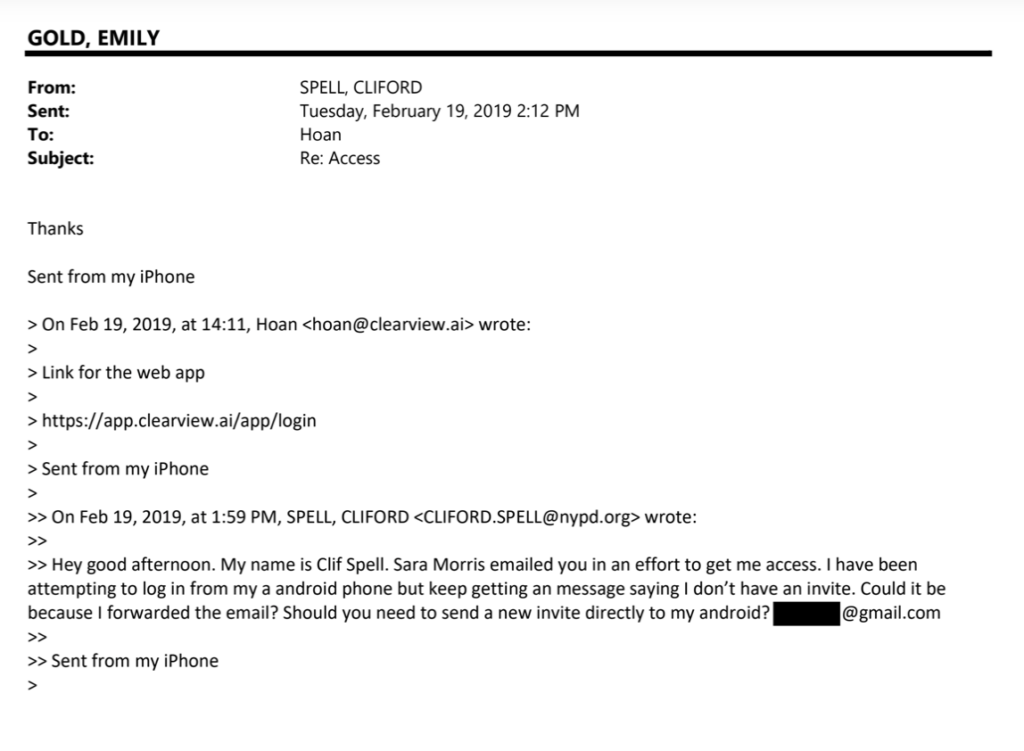
8. A Rudin Management employee helped to pitch Cleaview to NYPD officials.
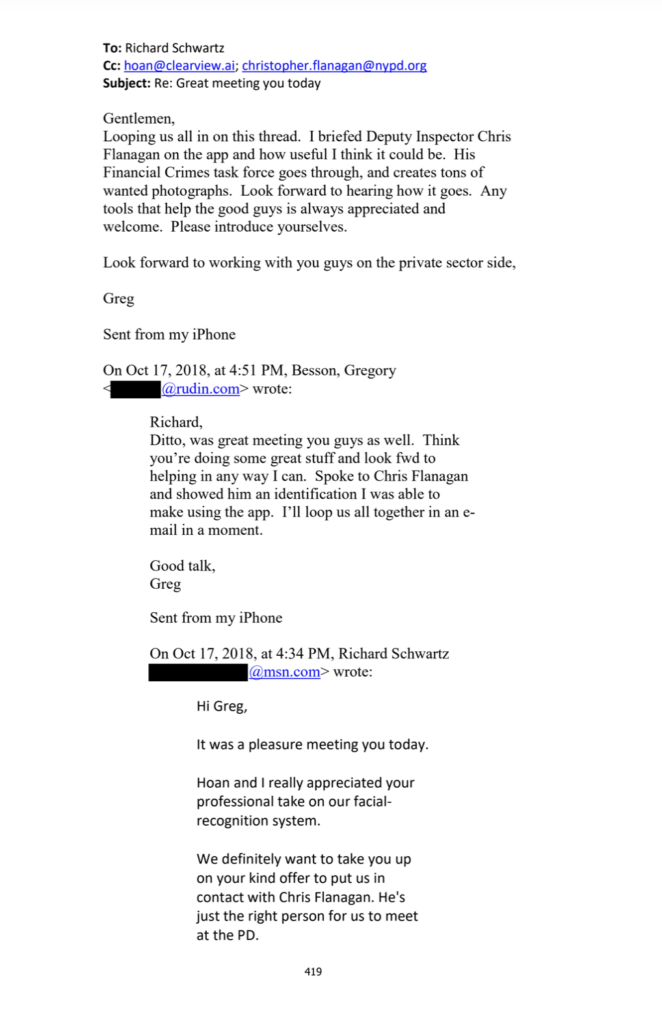
9. The Clearview help account administrator has a sense of humor. On January 8th, 2020, Emilio Gomez, a Detective in the Detective Bureau Grand Larceny Division TFO/Homeland Security Investigations who has both an NYPD and an ice.dhs.gov email address writes the Clearview help account. "I'm currently doing the free trial and will like to know what are the fees to have full access to your software?" writes Gomez.
"1 billion dollars," comes the reply. "Understood," replies Gomez.
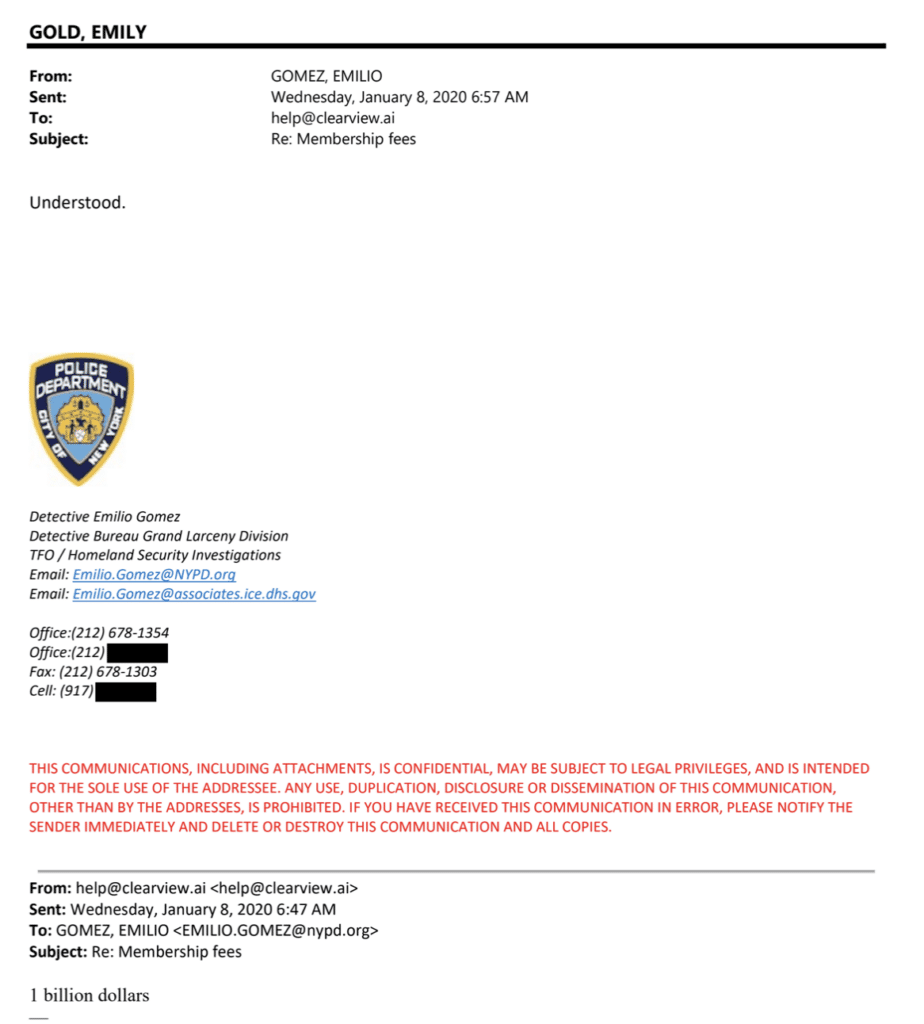
This post will be updated.
Authors

